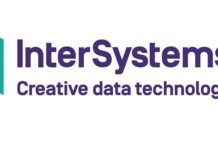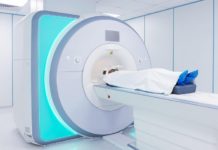Medtronic plc announced the U.S. Food and Drug Administration (FDA) clearance of StrataMR(TM) valves and shunts, an addition to Medtronic's family of Strata® Adjustable Valve Systems used in the treatment of patients with hydrocephalus and cerebrospinal fluid (CSF) disorders. The StrataMR system is intended to maintain its performance level setting during magnetic resonance imaging (MRI) exposure when scanned in accordance with labeling.
The clearance adds to Medtronic's portfolio of systems designed for access to full-body MRI, such as pacemakers, implantable cardioverter defibrillators (ICDs), deep brain stimulation (DBS) systems, and spinal cord stimulators. The StrataMR system will be available to physicians and their patients in the coming months.
"Patients with hydrocephalus and CSF disorders often require MRI," said Tom Poss, director of marketing in the CSF Management business, which is part of the Restorative Therapies Group at Medtronic. "The use of MRI has become a diagnostic standard of care, allowing physicians to detect a wide range of health conditions. And our StrataMR technology will offer healthcare providers a level of confidence in the shunt's performance should an MRI become necessary."
The StrataMR system is similar to the current family of Medtronic Strata valves, which offers a variety of sizes and configurations for hydrocephalus management. Strata valve products contain a magnet inside the valve mechanism that allows the neurosurgeon, as needed, to adjust the performance level setting in his or her office. Although neurosurgeons should still check performance levels after MRI exposure, the StrataMR system is designed to resist setting changes in an MRI field of up to 3.0 Tesla.
"I see many implications for the use of the new StrataMR, especially with patients who need to have their valves re-checked after MR imaging," said Marion L. Walker, MD, a professor of neurosurgery at the University of Utah. "Also, this technology will benefit those patients who are concerned about their exposure to strong magnets. This new technology may cut down on some of the insecurities these patients may feel."
"The StrataMR system builds on the reliability and convenience of Medtronic's Strata family of innovative therapies for the CSF community," said Scott Hutton, vice president and general manager of the Neurosurgery business, which is part of the Restorative Therapies Group at Medtronic. "Innovation continues to differentiate Medtronic. StrataMR now joins a growing number of Medtronic therapies that allow greater access to MRIs, including DBS systems, pacemakers, and ICDs."
About Hydrocephalus
The brain has its own circulatory system where cerebrospinal fluid is produced, absorbed and transported to the venous system of the sagittal sinus. Hydrocephalus is a condition where there is an excess amount of CSF in the ventricles of the brain. Left untreated hydrocephalus can result in enlarged heads, headaches, nausea and a significantly reduced quality of life. In the U.S., more than 1 million children and adults1 are affected with hydrocephalus and CSF disorders. The standard treatment of hydrocephalus is to implant a shunt or a device designed to drain CSF away from the nervous system to decrease the size of the enlarged ventricles.
About Medtronic
Medtronic plc (www.medtronic.com ), headquartered in Dublin, Ireland, is among the world's largest medical technology, services and solutions companies – alleviating pain, restoring health and extending life for millions of people around the world. Medtronic employs more than 85,000 people worldwide, serving physicians, hospitals and patients in approximately 160 countries. The company is focused on collaborating with stakeholders around the world to take healthcare Further, Together.






















